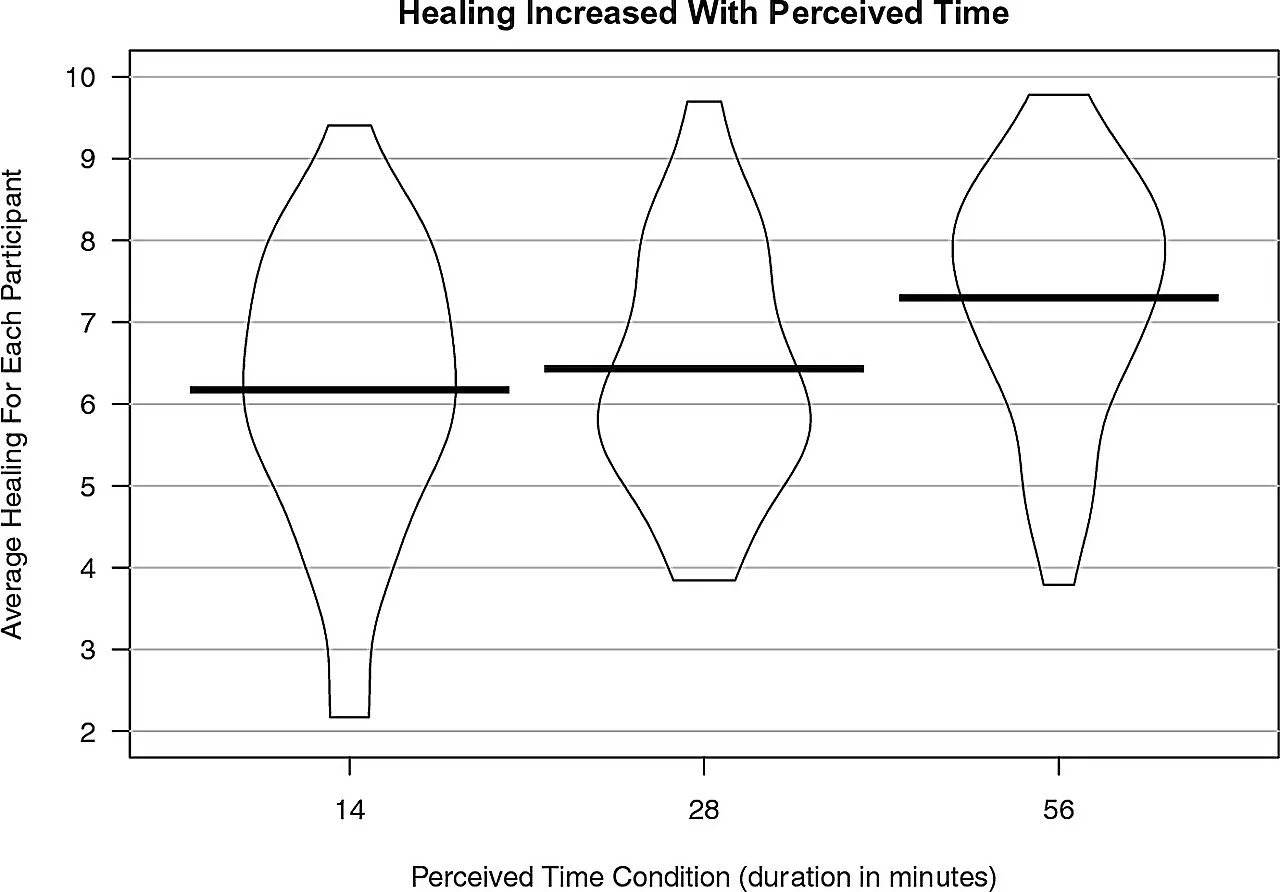For the first time, scientists have been able to establish that our perception of the passing of time can independently influence how a wound will heal. While preliminary, this novel study opens the door to a better understanding of the mind-body connection and its role in healing, pain management and more.
Through at-home self-reporting and controlled laboratory sessions, Harvard University researchers found that the skin inflammation left by a suction cup (used in 'cupping' therapy) was noticeably diminished for people who perceived more time had passed since the wound was inflicted – even though the time period remained constant across all groups.
The researchers recruited 33 participants aged between 18 and 50, each undergoing a multifaceted experiment. First, all participants applied the suction cup to a specific spot on their non-dominant arm and followed precise instructions regarding suction time and treatment. They were then required to take photos of the mark left by the cup immediately, complete a survey, snap another picture 30 minutes later, then answer more questions. They were required to do this each day for a week leading up to the lab sessions.
In the lab, each participant underwent three sessions, split into experimental conditions: Slow Time (14 minutes), Normal Time (28 minutes) and Fast Time (56 minutes). While the sessions were all 28 minutes long, counters were altered so the perception of time passing was warped. They had no watches, phones or clocks in the lab, but were provided with a counter on a tablet that would light up green every four minutes, for one minute, in order for a healing survey to be completed. While waiting for the counter to light up green, participants were required to play Tetris.
While the Normal Time session acted as the control, in Slow Time, the counter lit up green every 'two' minutes; in Fast Time, it was every 'eight' minutes. Following the 28-minute sessions, the participants were also tasked with rating specific YouTube clips to further upend any innate time perception, so each of the three experiments lasted for just over one hour. Researchers also took photos of the cupping wound at different intervals, much like participants had been required to do at home.
What the researchers found was that only five of the finishing 32 participants had a mean healing rate of eight or above when they perceived the session to have lasted 14 minutes. Eight participants in the Normal Time exposure had a healing rate of eight or above, while 11 participants had this high healing rate when they perceived the session extended for 56 minutes.

More than a third of participants had almost completely healed by the end of the time period when they believed the session had lasted 56 minutes - more than double the percentage of those who experienced the same healing by the end of what they thought was a 14-minute session.
Existing psychosocial variables checked out – for example, the impact stress and age have on the healing process – yet the data showed that there's a complex relationship between internalized concepts of time and the physiological response to time passing.
"The language of mind–body unity does not undermine the validity of biomedical models that emphasize external factors and lower-level processes," the researchers wrote. "It simply insists on the importance of psychological factors in all aspects of health and wellbeing. Perceptions, expectations, beliefs, and so on are reflected throughout the mind–body and necessarily shape biological and physiological processes."
The team is now researching ways to better understand the underlying mechanisms of these initial findings, while the current study provides a fascinating starting point to unravel the complexities of our mind-body biology.
The study was published in the journal Nature Scientific Reports.
Source: Harvard University via Medical Xpress





